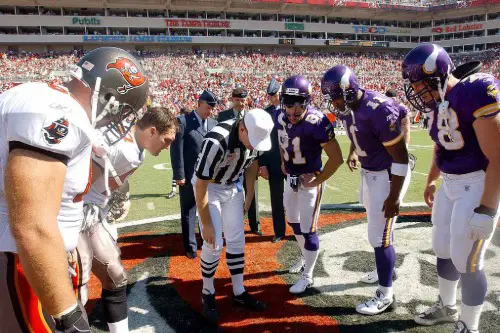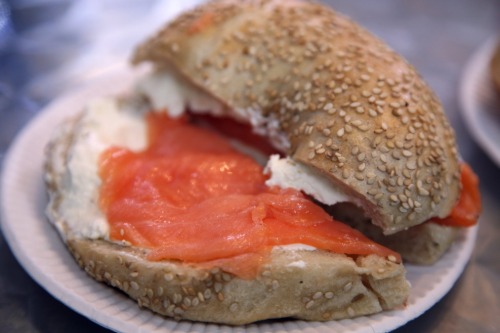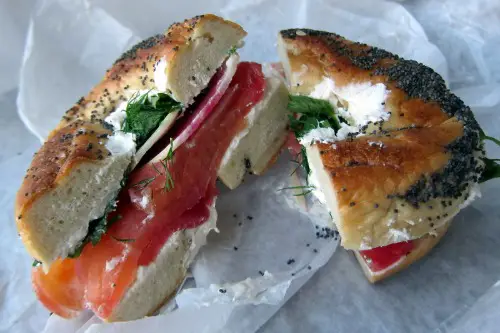1. Gun Control

This one hits headlines, protests, and dinner table debates. Americans argue endlessly about the Second Amendment, background checks, and restrictions. Many outsiders are puzzled by the intensity and the legal nuances, given that other developed nations have stricter laws and far less controversy. To them, it’s a matter solved decades ago.
The debate isn’t just political—it’s personal and historical for many Americans. Arguments often involve anecdotes, tragedies, and constitutional interpretations. Outside the U.S., the conversation seems surreal or extreme. They may follow the news but rarely feel compelled to take sides.
2. The Metric System vs. Imperial Measurements

Americans still cling to miles, inches, and pounds, while most of the world uses kilometers, centimeters, and kilograms. Every time there’s a discussion about science, cooking, or international travel, this debate pops up. People argue whether switching to the metric system would make life easier or if it’s an unnecessary upheaval. Outsiders mostly shrug, since they already live in metric and never have to convert a recipe in Fahrenheit.
From a global perspective, it seems like a tiny inconvenience, not a heated national issue. The debates often spiral into “tradition vs. efficiency” arguments. For Americans, it’s almost cultural, tied to identity and comfort with the familiar. To outsiders, it’s just numbers on a page, hardly worth a quarrel.
3. Pineapple on Pizza

This culinary controversy can start wars in comment sections and family dinners alike. Some Americans defend pineapple as a sweet-and-savory delight, while others see it as pizza heresy. The intensity of the argument makes it feel like a cultural hill worth dying on. Globally, people either enjoy it or don’t—it rarely sparks outrage.
Outsiders tend to have a “try it and see” approach rather than a moral one. They might notice American debates about it online and think, “Seriously?” It’s a perfect example of how Americans elevate minor preferences into national talking points. Most countries just eat what they like without turning it into a philosophical debate.
4. Red Solo Cups at Parties

Ask Americans about the ultimate party accessory, and you’ll get passionate responses about red Solo cups. Some see them as essential to college parties or backyard barbecues, while others think they’re disposable plastic chaos. The argument isn’t just about cups—it’s about nostalgia, social culture, and identity. Meanwhile, outsiders rarely even recognize them, let alone care.
To many non-Americans, a cup is just a cup. The emotional weight Americans attach to red Solo cups is uniquely tied to party culture in the U.S. The debates online about “which cup is best” can get surprisingly heated. But outside of the U.S., most people sip from whatever’s available and move on.
5. How to Make a Proper Hot Dog

Ketchup, mustard, onions, relish—the list goes on, and so do the arguments. In America, regional traditions dictate the “right” way to dress a hot dog, and people defend them fiercely. Outsiders rarely know or care because hot dogs themselves aren’t as iconic in many countries. What Americans consider a food culture war is, elsewhere, simply a snack.
These arguments are deeply regional, with Chicagoans, New Yorkers, and Texans all staking claims. Someone putting ketchup on a hot dog can trigger outrage in certain circles. To outsiders, it’s just a matter of taste. Americans, however, treat it like a moral choice.
6. College Football vs. NFL Football

Americans agonize over which is better: college teams with local loyalty or professional leagues with elite athletes. Rivalries are fierce, and allegiances are often lifelong. Outsiders may know football exists, but they rarely understand the depth of devotion to amateur vs. professional sports. The U.S. treats it like a cultural institution rather than a simple game.
People can spend entire weekends debating team strategies and rankings. Tailgating culture and stadium traditions add fuel to the fire. Non-Americans usually watch a single game or tournament casually, without caring about conferences or divisions. It’s just another spectator sport to them.
7. Bagel Toppings and Toasting Techniques

New Yorkers insist bagels must be chewy, boiled, and topped in specific ways. Arguments rage over cream cheese thickness, lox pairings, and whether to toast. Outsiders often find it puzzling that bread preparation can cause heated disputes. In most countries, bagels are just breakfast items, not battlegrounds.
People feel passionately that the wrong topping or texture is an insult to tradition. Social media amplifies these debates endlessly. Outside of the U.S., bagels are more of a novelty. Americans, however, treat them like culinary gold.
8. Which Holidays Are Really Important

Americans argue about which holidays deserve time off, parades, or serious recognition. Some defend Halloween as a cultural staple, others insist Thanksgiving trumps everything. Internationally, Thanksgiving is almost unknown, and Halloween is celebrated differently, if at all. The argument is intensely American and often baffling to outsiders.
It’s not just about fun—it’s about identity, family traditions, and commerce. People also argue about whether Valentine’s Day, Mother’s Day, or Presidents’ Day are worth celebrating. Outsiders tend to observe without judgment. In America, though, these debates can ignite genuine emotional responses.
9. The Best Fast-Food Chain

McDonald’s, In-N-Out, Chick-fil-A, Taco Bell—Americans argue endlessly over which is supreme. Each chain has die-hard fans ready to defend everything from fries to service. Outside the U.S., fast food exists, but national brand wars rarely provoke such intense loyalty. The debate is largely fueled by nostalgia and regional pride.
Fast food has a cultural significance in America that outsiders don’t always grasp. People argue over quality, ethics, and authenticity. Social media makes these debates highly visible. Elsewhere, people just eat a burger without forming a movement around it.
10. Whether to Call It Soda, Pop, or Coke

A classic linguistic divide in the U.S.—and a surprisingly emotional one. People fight over regional terminology, with arguments often turning humorous or sarcastic. Outsiders almost never understand the intensity because “soft drink” is sufficient globally. For Americans, the name signals identity and geographic roots.
These debates are often good-natured but occasionally escalate. Linguists might appreciate them, but most outsiders find them trivial. Americans treat the label as a badge of authenticity. Elsewhere, it’s just a fizzy drink.
11. Toilet Paper Orientation

Over or under? Americans have passionate opinions about the correct way to hang toilet paper. Social media threads dissect it with scientific diagrams and psychological reasoning. Outside the U.S., this is usually not a topic of conversation at all. Toilets and paper are practical tools, not philosophical conundrums.
The debate is surprisingly entrenched, sometimes splitting households. People defend their method as both efficient and aesthetically pleasing. Outsiders simply use whichever method is convenient. The intensity of American arguments over TP seems almost absurd from their perspective.
12. Whether Bagels Are Breakfast or Anytime Food

Bagels spark another debate: should they be limited to breakfast or embraced all day? Americans have strong opinions, and breakfast purists may scorn afternoon consumption. In many other countries, the timing of bread consumption is a non-issue. It’s just food, not a lifestyle choice.
This debate often ties into broader discussions about meal etiquette. Some insist breakfast food should stay sacred, while others embrace flexibility. Outsiders rarely notice this distinction. Americans, however, take it seriously enough to tweet about it.
13. The “Correct” Way to BBQ

Barbecue style varies wildly across the U.S.—Kansas City, Texas, Carolina, Memphis—all have die-hard followers. People argue about sauce, smoking technique, and meat type as if the world depends on it. Outsiders enjoy barbecue if they encounter it but rarely care about the subtle distinctions. They see grilled meat as universally tasty, not a philosophical debate.
In the U.S., barbecue represents regional pride, family tradition, and skill. Arguments often get personal, especially when comparing recipes or sauces. Globally, people just appreciate the flavor without the underlying politics. For Americans, though, a bad barbecue can feel like an insult.
This post 13 Things Americans Still Argue About That Outsiders Don’t Care About at All was first published on American Charm.


